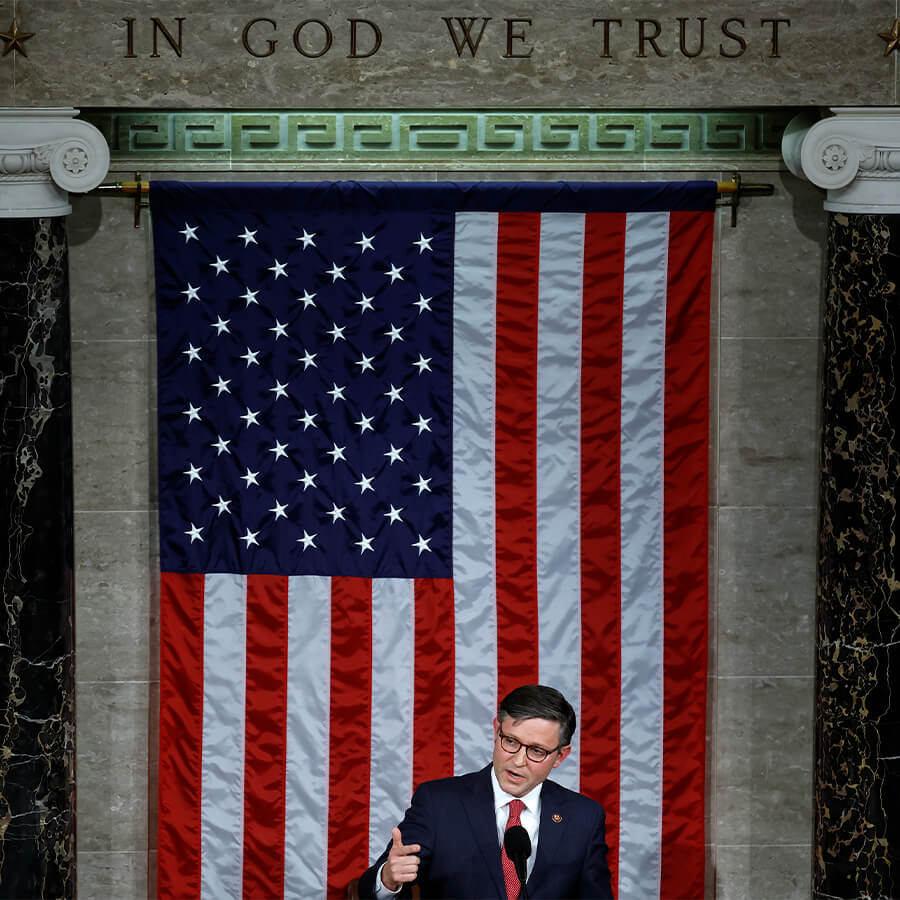By Kendall Kalustyan
Storytelling is a powerful tool in progressive advocacy. My name is Kendall Kalustyan (he/him/his). I am 22 years old, a recent graduate of American University, I love music, I drive like an old man, and I happen to be transgender. In my professional career, I have spent the greater of the past two years fighting anti-transgender legislative attacks in Alabama, Texas, and now at the federal level.
Unprecedented Number Of Anti-LGBTQ+ Bills
Over the past three years, there have been more bills than ever recorded in U.S. history attacking the transgender community. In 2023 alone, there are 340-plus anti-LGBTQ+ bills being introduced in state legislatures. These bills propose to desolate transgender people’s rights to access healthcare, athletics, restrooms, education, military service, and safety in public. By the end of the 2023 legislative session, it is estimated that roughly 20 states will have banned medically necessary, age-appropriate, and life-saving gender-affirming care practices.
This unprecedented legislative attack would appear antithetical as more Americans than ever, particularly Gen Z, are identifying as LGBTQ+. One step forward, three steps back. The growing demographics have sparked an opposition movement that is aggressive and fanatical beyond my wildest imagination.
Shamelessly, anti-transgender lawmakers and political figures boast a national platform of hate. Recently, at the Conservative Political Action Conference (CPAC), commentator Michael Knowles set an agenda of eradicating “transgenderism” from public life. Historically, pledges from political institutions to purge an entire population have not ended well. And yet, I still find myself needing to beg people to care.
Misconceptions About Transgender Youth
Throughout my adolescence, my transition was entirely social, as it is for the vast majority of transgender youth. This meant experimenting with different clothing, hairstyles, and personal pronouns. It is a grave misconception and inaccuracy spread by lawmakers pushing for gender-affirming care bans that all transgender youth are undergoing a medical transition.
Growing up was not easy. It is due to the grace of a few friendly school counselors, teachers, therapists, and my parents that I have become a successful adult. Those are the same resources that anti-transgender lawmakers seek to erase with “Don’t Say LGBTQ+” and forced-outing education laws, such as HR 5 Parent’s Bill of Rights that passed the U.S. House of Representatives. It is not lost on me that 1 in 4 transgender youth will attempt suicide during those same adolescent years that I struggled through. The mental health implications of these anti-trans policies follow transgender people to their adult lives as well. I would be remiss not to mention my former colleague, Henry Berg-Brousseau, a vibrant, 24-year-old transgender activist from Kentucky who died by suicide last December.
Now, as an adult beginning my medical-transition journey, I am visibly trans. This means that when I am walking to Trader Joes to get my groceries for the week, or in my Uber trying to get home safely at the end of the night, I am recognizably different. In a time when lawmakers are openly calling for my eradication, that exposes me to a host of violence in public life. Violence that I have experienced firsthand. I am trying to keep my head up, while also knowing there is an enormous neon target on my back. As resilient as I am, I am also scared and exhausted.
Frequently, when I tell my peers about the legislation passing at alarming rates across the U.S., they respond well-meaningly and say, “Well, don’t ever move to that state!” But protecting me, the one transgender person they know and love, offers no solution to the crisis at hand.
So, let me offer a few solutions that we all should be advocating for:
Pass The Do No Harm Act And Equality Act
One of the main tactics of anti-transgender lawmakers is using religious freedom as a license to discriminate. In early March, the House Education and Workforce Committee was debating the HR 734, which would federally strip transgender girls of their right to participate in athletics. During the bill markup, several lawmakers cited God and their own personal religious beliefs as their rationale for passing this legislation.
Some legislators would go even further and codify religion-based discrimination into law. This is why we need the Do No Harm Act. The Do No Harm Act would protect religious freedom while ensuring that it cannot be misused to harm others. Specifically, the Do No Harm Act would restore the Religious Freedom Restoration Act to its original intent – to protect religious exercise without infringing on the rights of others.
Additionally, the Equality Act would strengthen legal protections against discrimination on the basis of religion in public accommodations. More than 120 faith-based organizations have endorsed the Equality Act, as have at least 17,000 individual faith leaders from across the country.
Amplify Transgender Voices
In order to stop legislative attacks on the transgender community, I ask you to share my story. If you have not met a trans person before, now you have met me. Contact your representatives and tell them to support the Do No Harm Act and Equality Act. Tell your lawmakers that you do not support anti-transgender legislation and that it is time to stop these blatantly hateful attacks on transgender Americans.
Kendall Kalustyan, a recent graduate of American University, is a member of AU’s Youth Organizing Fellowship program. Learn more here.


